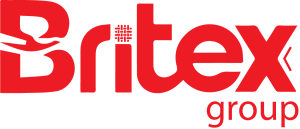CERTIFICATION
A certification for a Ready-Made Garment (RMG) company demonstrates compliance with industry standards, safety, sustainability, and quality. Depending on the company’s goals, customer base, and market demands, there are several types of certifications that an RMG company might pursue. Here are some common certifications and their significance:
ISO 9001 – Quality Management Systems: ISO 9001 certifies that a company’s quality management system meets international standards. It indicates that the company consistently delivers quality products and services and is focused on customer satisfaction.
ISO 14001 – Environmental Management Systems: This certification confirms that the company has an effective environmental management system, demonstrating a commitment to sustainability and minimizing environmental impact.
SA 8000 – Social Accountability: SA 8000 focuses on social responsibility, ensuring that the company adheres to ethical labor practices, including fair wages, safe working conditions, and respect for workers’ rights.
OHSAS 18001 / ISO 45001 – Occupational Health and Safety: These certifications focus on workplace safety and health, ensuring that the company has implemented measures to protect its employees from workplace hazards and risks.
Global Organic Textile Standard (GOTS): GOTS certifies organic textiles and confirms that the company’s products meet strict ecological and social criteria throughout the supply chain.
Fair Trade Certification: This certification ensures that the company’s products are made under fair trade practices, promoting fair wages, safe working conditions, and ethical treatment of workers.
WRAP (Worldwide Responsible Accredited Production): WRAP certifies that a company meets global social compliance standards, focusing on ethical manufacturing practices, labor laws, and fair treatment of workers.
BSCI (Business Social Compliance Initiative): BSCI certification indicates that the company complies with a common set of social compliance standards, emphasizing workers’ rights and ethical practices.
These certifications often require ongoing audits, documentation, and compliance with established standards. When choosing which certifications to pursue, consider the markets you’re targeting, customer expectations, and the company’s values.
OUR CERTIFICATES

ACCORD RSC FIRE CERTIFICATE

Sedex - Audit Report -Space Sweater Ltd

GOTS Certificate

GRS Certificate

OEKOTEX CERTIFICATE

ECC Certificate

Higg certificate (FEM) Updated

SCOPE_CERTIFICATE_RCS

BSCI Audit Summary Report

ACCORD-RSC-23383_Structural (Jogitala)

ACCORD-RSC-23383_3RD FUiN Electrical OA_040922

ICS_Audit_CAP_-_9008534

Higg Environmental, Social & Labour certificate

SCOPE_OCS_CERTIFICATE


